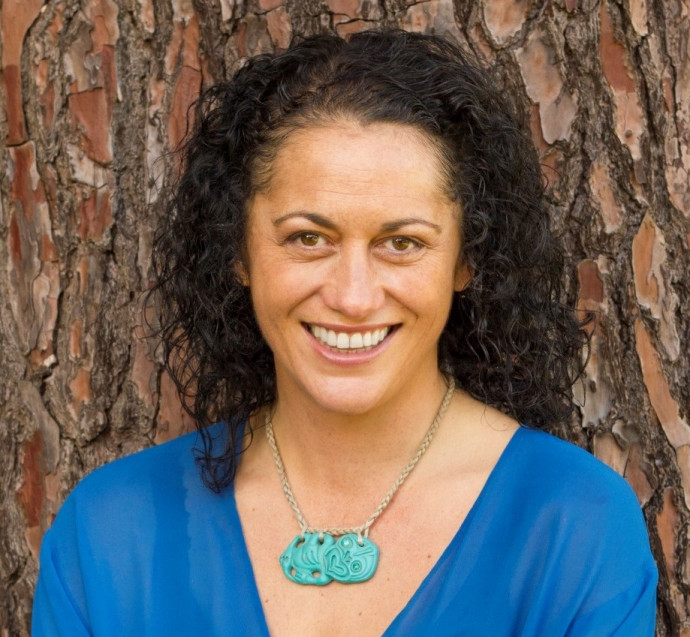Associate Professor Elana Curtis

Ngāti Rongomai, Ngāti Pikiao, Te Arawa
Elana Curtis is a Public Health Physician and Associate Professor Medical at Te Kupenga Hauora Māori, University of Auckland.
In 2004-2005, Elana was a Harkness Fellow based at the University of California (San Francisco) investigating ethnic disparities in breast cancer mortality and survival. Prior to this, she worked at the National Screening Unit, Ministry of Health in Wellington where she investigated Māori:non-Māori disparities in breast cancer epidemiology. She also worked at Te Ropū Rangahau Hauora ā Eru Pōmare – Māori Health Research Centre at the University of Otago, investigating ethnic disparities in access to invasive cardiovascular procedures/caesarean sections and the relationship between disparities and deprivation.
Elana has recently submitted her Doctorate of Medicine (MD) focused on indigenous health workforce development and is involved in Kaupapa Māori Research investigating the teaching of indigenous health within medical education, ethnic inequities within emergency department settings, ethnic inequities in cardiovascular care and is developing a research focus exploring the prevalence of dementia amongst Māori.
Q. What do you bring to the panel?
I work in our Māori communities, as a Māori doctor and as an Associate Professor of Māori health and Indigenous health more broadly. I work to expose the deprivation experienced by Māori, the racism of the Pākehā Western system in which we have to operate and the terrible impact of colonisation on Indigenous peoples worldwide (both historical and contemporary).
In my career, I have been fortunate to live in the United States of America as a Harkness Fellow in Healthcare Policy and Practice, and I have been privileged to have received a Ngārimu Māori Battalion doctoral scholarship (with the ultimate highlight being the finishing of my doctorate), a national Tertiary Teaching Excellence Award from Ako Aotearoa and a Māori Television Te Tupu-ā-Rangi Matariki Award for Health and Science. I have recently been appointed to the Auckland City Mission Board and look forward to the new challenges that this will bring.
Q. Why is it important to discuss fair futures in Aotearoa society?
Fair futures matters because not everyone has the same future potential within Aotearoa. That is not ok and that is not acceptable.
Unfortunately, Māori in Aotearoa are predicted to have a lower life expectancy than their Pākehā counterparts, are more likely to suffer disability, less likely to receive appropriate health care access and if they do access healthcare are more likely to have lower quality of care. These observed and predicted experiences of inequity are driven by an unfair society that disadvantages some and privileges others. The historical insult of colonisation that continues today, the entrenchment of social deprivation within Māori communities, cultural subjugation and loss of political power have all contributed to an unfair future for Māori.
Similar patterns of disadvantage can be seen for Pacific, those living with disability, those who are identify as LGTBQi+ etc. We should never accept that a person’s ethnicity, experience of disability or sexual orientation will be associated with different outcomes within our society. All of us have the right to dream and discussions about these rights are needed in our society given the current state of play.
Q. Are there grounds for optimism?
Having recently witnessed the groundswell of acknowledgement for the Black Lives Matter movement and the dismantling of colonial expressions of superiority over Indigenous peoples and peoples of colour – one has to be optimistic. But I am cautious in this optimism as I understand how those with power have a deep desire to maintain their positioning. Even though that positioning (that promotes an unfair society riddled with inequities) disadvantages everyone including themselves. In other words, unfairness in society is not just bad for those who have the least, it is bad for all of society. So the stupidity of the situation makes me believe that we must have hope and optimism.
Surely, the more people we can help to deconstruct the myths that perpetuate our society about our patterns of advantage and disadvantage and what is driving these outcomes the better. I hope that being prepared to have conversations about equity, fairness and social justice will help New Zealanders to opt in for a fairer future for Māori as Indigenous tangata whenua and for all tauiwi here in Aotearoa.
View an interview with Elana on the Curious Minds website.
Associate Professor Elana Curtis
Not everyone has the same future potential within Aotearoa. That is not ok and that is not acceptable.
